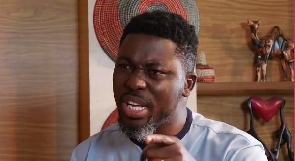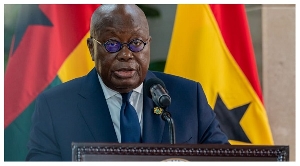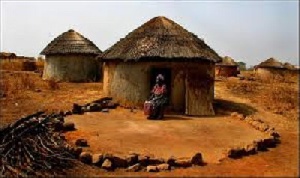General News of Thursday, 20 May 2021
Source: classfmonline.com
'You killed 9 banks with GH¢21 billion only to borrow €170 million to start another' - A Plus to Akufo-Addo
A critic of the government, A Plus, has questioned why the Akufo-Addo administration spent more than GH¢21 billion “to collapse banks that needed about GH¢9 billion to survive” but now “borrowing 170 million euros to establish a new national bank when you already have NIB which is struggling; adb which is struggling”, as well as GCB Bank and CBG.
“Ghana beyond aid but you are borrowing money to start a national bank”, A Plus observed.
Some nine local banks, 23 savings & loans companies, 347 microfinance institutions, 39 finance houses and 53 fund management companies have been closed down since 2017 under President Nana Akufo-Addo in a financial sector clean-up exercise.
The Ministry of Finance and the European Investment Bank signed an agreement for the provision of the €170-million facility for the establishment of Development Bank Ghana (DBG).
DBG is an integral feature of the GH¢100 billion Ghana Cares ‘Obaatampa’ Project, which is seeing to the revitalisation of the Ghanaian economy following the onset of COVID-19.
This signing event took place on Wednesday, 19 May 2021, when President Nana Addo Dankwa Akufo-Addo held a meeting with the President of the European Investment Bank, Dr Werner Hoyer, as part of his official visit to Belgium.
The €170-million facility, according to Dr Hoyer, is the largest facility provided by the European Investment Bank for the establishment of a development bank in Africa or for any other project, for that matter, on the continent.
Speaking at the signing ceremony, President Akufo-Addo noted that “the Development Bank Ghana is going to play a very important part in the rapid economic transformation of Ghana, following the onset of COVID-19.”
According to him, “we want to restructure the economy and move it from being a mere producer and exporter of raw materials to one that places much greater emphasis on value addition activities. We see this Bank (DBG) as one that will play a pivotal role in this”.
The President indicated that the design and operation of the bank, “which has been on the drawing board for the last two years”, will satisfy the highest standards, scrutiny and best practices of Development Banks across the world, assuring further that the €170-million facility from the EIB will be used for the purposes for which it was sought.”
President Akufo-Addo reiterated that the provision of this facility signals the determination of Ghana to continue partnering with the EU, with the President informing Dr Hoyer that Ghana will fall on the EIB to continue to finance other projects in the pipeline, as the country works to recover from the impact of COVID-19.
The Minister of State-designate of Finance, Mr Charles Adu Boahen, who was also present at the signing ceremony, explained that the focus of the government, since the outset of COVID-19, has been to put in place the building blocks for an inclusive and sustainable economic recovery.
“With the overall objective of creating a favourable environment to spur private sector-led growth, the Government of Ghana recognises the importance of a substantial allocation of development capital to critical economic sectors at sustainable interest rates and longer tenures. Accordingly, there has been a heightened need to establish the Development Bank Ghana”.
He stressed that Development Bank Ghana will be a central player for Ghana’s economic recovery and structural transformation, “especially given the importance of counter-cyclical support in stimulating private enterprise.”
Dr Hoyer, for his part, was confident that the establishment of Development Bank Ghana will help unlock opportunities for growth in Ghana, as well assist in the rapid recovery of the Ghanaian economy from the ravages of COVID-19.
He noted that the establishment of the Bank is in line with the objectives of the European Union, and will help develop Ghana’s private sector, agri-business, manufacturing and ICT initiatives.
While describing the decision to establish DBG as “a wise one”, the EIB President added that the Bank sees the partnership with Ghana as a fruitful one, indicating that the EIB will follow keenly the development and workings of DBG in Ghana.











